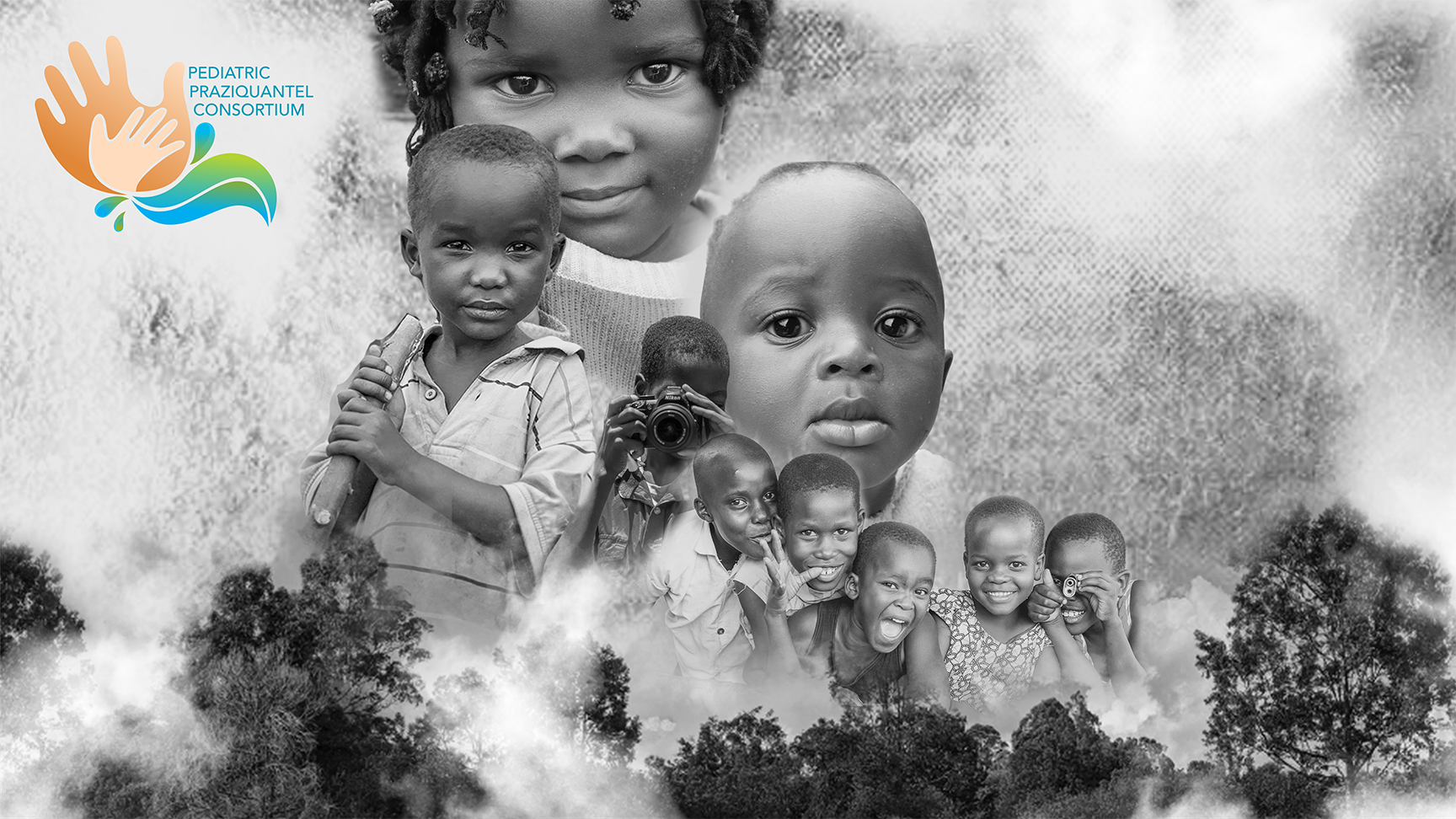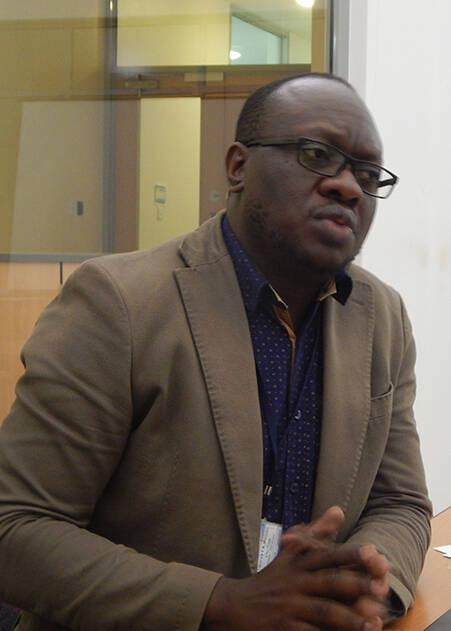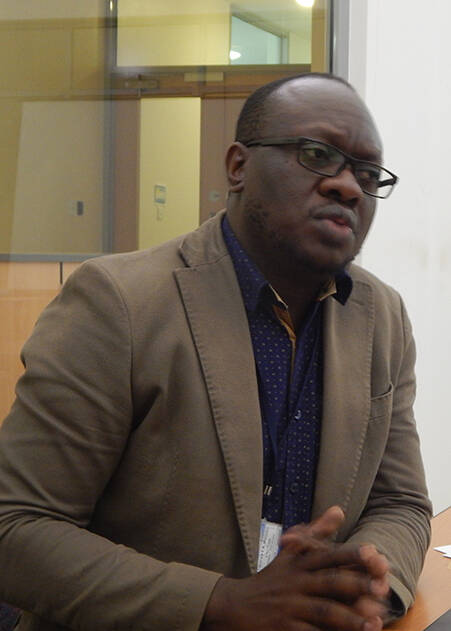We reached out to Dr Maurice Odiere, Head of the Neglected Tropical Diseases Unit at KEMRI, Kisumu, Kenya, about leading the phase III clinical trial in Kenya and the capacity that was built to conduct the study.


You were involved in the design of the phase III trial and have successfully conducted it at your site. What specific requirements proved to be key to the trial’s success?
Maurice Odiere (MO): As a state corporation, KEMRI provides advice to the Ministry of Health on healthcare and delivery, and it conducts research and builds capacity. By involving a trial principal investigator, investigators, and other local stakeholders through KEMRI right from the onset, the trial could be designed to reflect Kenya’s public health needs and priorities and address any culturally-sensitive ethical issues.
Through KEMRI’s participation, we could tap into specialist expertise as well as data on local disease epidemiology, and apply robust regulatory review through KEMRI’s Scientific and Ethics Review Unit (SERU) and Kenya’s medicines regulatory authority – the Pharmacy and Poisons Board. We could involve experienced clinical staff as well as financial and administrative staff who already had good working relationships with the trial sites, so that any issues arising could be addressed in a timely manner.
A trial’s success also depends to a large extent on credibility and trust. KEMRI’s experience in conducting studies in young children and its extensive knowledge on community mobilisation proved invaluable. It enabled us to adopt a culturally-sensitive approach to, for instance, obtaining adequate informed consent for very young children, providing reasonable standards of care, and determining guardianship. Another important aspect was the good working relationships between the local investigators, the sponsor (Merck), and the monitors who were all very responsive.
Dr Maurice Odiere

What were the main challenges you faced and had to solve in the context of the trial?
MO: In general, conducting a clinical trial is a highly complex endeavour, let alone doing this in a low-resource setting. It requires substantial investments to comply with ICH GCP guidelines, to attract and mobilise the right staff, to sustain trial sites and to deal with unexpected events.
Talking about the latter, the COVID-19 pandemic hit our country when we were recruiting trial participants, setting the trial back six months. We mitigated this delay by recruiting an additional field team to support recruitment, but this was really one of the main challenges we faced.
Another major challenge was getting the contractual agreements and approvals in place in time. Fortunately, we had already built relations and learned to navigate bureaucracy, but at times it was really challenging and this is a factor that cannot be underestimated with any planned trial.
This relates to another major challenge: managing stakeholder expectations, which is especially important in these kinds of large-scale, complex international trials. Through constant dialogue and providing accurate information at all times, and making sure agreements were well documented, we made sure expectations were aligned every step of the way and issues could be resolved in a timely manner.
Lastly, we encountered a higher proportion of mixed Schistosoma mansoni & S. haematobium infections than we had anticipated. We mitigated this challenge by leveraging the local knowledge on disease epidemiology, and recruiting an additional field team to speed up enrollment.
What capacities have you been able to (further) develop because of the project?
MO: Investments in Africa in healthcare and clinical trials are rising, providing an ever-stronger basis for conducting clinical trials. Clinical trials also play a complementary role in bridging the funding gap in investments in healthcare. For instance, investments made in setting up a clinical trial can benefit a local community by improving standards of care as a result of better disease surveillance and access to healthcare facilities.
When you ask about specific capacities we have further developed, I think we have been able to strengthen both the ‘hardware’ and the ‘software’ of our capacities. In terms of hardware, we have given our trial infrastructure a facelift: we set up and stocked a pharmacy, refurbished a clinical ward, purchased beds and screens, purchased and serviced laboratory equipment et cetera.
In terms of software, we were able to couple inexperienced staff with senior staff and train a new generation of clinical trial experts. By doing so, we created a pool of human resource capacity that other trials can tap into. We worked closely with clinicians and laboratory technologists at the hospital site and sensitized them more on schistosomiasis, thereby increasing their index of suspicion which ultimately will improve diagnosis and standard of care. And this is really the essence of investing in these kinds of trials: you not only build for one purpose, you build a broad base that will benefit a country’s public health system in the long run.
And last but not least, we have built even stronger networks and partnerships with all Pediatric Praziquantel Consortium members and other stakeholders.
How do you hope the ultimate availability of arpraziquantel will make a difference in your country?
MO: This new product represents an unprecedented opportunity to provide access to treatment and improve the health and wellbeing of children and their communities. By conservative estimates, between 130,000 and 200,000 preschool-aged children are believed to be infected with schistosomiasis in Kenya. I expect that that the local credibility and trust fostered during the trial will enhance uptake of arpraziquantel as the focus now shifts to access through various delivery platforms.
I believe that we have set the benchmark for future trials. Through partnerships, building capacities and trust, providing evidence, and through tech transfer, we have laid the foundations for future not-for-profit public-private R&D partnerships. Tech transfer and training will lead to self-sufficiency in product manufacturing, potentially allowing Kenya and other regional endemic countries to meet the needs of their communities in a timely manner without external support. In the end, by addressing this unmet medical need, I hope we have been able to greatly accelerate the progress towards WHO’s schistosomiasis elimination strategy and to contribute to Kenya’s Breaking Transmission Strategy (BTS), thereby advancing Kenya’s progress towards universal health coverage and sustainable development goals.
“I believe that we have set the benchmark for future trials. Through partnerships, building capacities and trust, providing evidence, and through tech transfer, we have laid the foundations for future not-for-profit public-private R&D partnerships.”
— Dr Maurice Odiere
scroll down
We reached out to Dr Maurice Odiere, Head of the Neglected Tropical Diseases Unit at KEMRI, Kisumu, Kenya, about leading the phase III clinical trial in Kenya and the capacity that was built to conduct the study.



“I believe that we have set the benchmark for future trials. Through partnerships, building capacities and trust, providing evidence, and through tech transfer, we have laid the foundations for future not-for-profit public-private R&D partnerships.”
— Dr Maurice Odiere
How do you hope the ultimate availability of arpraziquantel will make a difference in your country?
MO: This new product represents an unprecedented opportunity to provide access to treatment and improve the health and wellbeing of children and their communities. By conservative estimates, between 130,000 and 200,000 preschool-aged children are believed to be infected with schistosomiasis in Kenya. I expect that that the local credibility and trust fostered during the trial will enhance uptake of arpraziquantel as the focus now shifts to access through various delivery platforms.
I believe that we have set the benchmark for future trials. Through partnerships, building capacities and trust, providing evidence, and through tech transfer, we have laid the foundations for future not-for-profit public-private R&D partnerships. Tech transfer and training will lead to self-sufficiency in product manufacturing, potentially allowing Kenya and other regional endemic countries to meet the needs of their communities in a timely manner without external support. In the end, by addressing this unmet medical need, I hope we have been able to greatly accelerate the progress towards WHO’s schistosomiasis elimination strategy and to contribute to Kenya’s Breaking Transmission Strategy (BTS), thereby advancing Kenya’s progress towards universal health coverage and sustainable development goals.
What capacities have you been able to (further) develop because of the project?
MO: Investments in Africa in healthcare and clinical trials are rising, providing an ever-stronger basis for conducting clinical trials. Clinical trials also play a complementary role in bridging the funding gap in investments in healthcare. For instance, investments made in setting up a clinical trial can benefit a local community by improving standards of care as a result of better disease surveillance and access to healthcare facilities.
When you ask about specific capacities we have further developed, I think we have been able to strengthen both the ‘hardware’ and the ‘software’ of our capacities. In terms of hardware, we have given our trial infrastructure a facelift: we set up and stocked a pharmacy, refurbished a clinical ward, purchased beds and screens, purchased and serviced laboratory equipment et cetera.
In terms of software, we were able to couple inexperienced staff with senior staff and train a new generation of clinical trial experts. By doing so, we created a pool of human resource capacity that other trials can tap into. We worked closely with clinicians and laboratory technologists at the hospital site and sensitized them more on schistosomiasis, thereby increasing their index of suspicion which ultimately will improve diagnosis and standard of care. And this is really the essence of investing in these kinds of trials: you not only build for one purpose, you build a broad base that will benefit a country’s public health system in the long run.
And last but not least, we have built even stronger networks and partnerships with all Pediatric Praziquantel Consortium members and other stakeholders.
What were the main challenges you faced and had to solve in the context of the trial?
MO: In general, conducting a clinical trial is a highly complex endeavour, let alone doing this in a low-resource setting. It requires substantial investments to comply with ICH GCP guidelines, to attract and mobilise the right staff, to sustain trial sites and to deal with unexpected events.
Talking about the latter, the COVID-19 pandemic hit our country when we were recruiting trial participants, setting the trial back six months. We mitigated this delay by recruiting an additional field team to support recruitment, but this was really one of the main challenges we faced.
Another major challenge was getting the contractual agreements and approvals in place in time. Fortunately, we had already built relations and learned to navigate bureaucracy, but at times it was really challenging and this is a factor that cannot be underestimated with any planned trial.
This relates to another major challenge: managing stakeholder expectations, which is especially important in these kinds of large-scale, complex international trials. Through constant dialogue and providing accurate information at all times, and making sure agreements were well documented, we made sure expectations were aligned every step of the way and issues could be resolved in a timely manner.
Lastly, we encountered a higher proportion of mixed Schistosoma mansoni & S. haematobium infections than we had anticipated. We mitigated this challenge by leveraging the local knowledge on disease epidemiology, and recruiting an additional field team to speed up enrollment.
You were involved in the design of the phase III trial and have successfully conducted it at your site. What specific requirements proved to be key to the trial’s success?
Maurice Odiere (MO): As a state corporation, KEMRI provides advice to the Ministry of Health on healthcare and delivery, and it conducts research and builds capacity. By involving a trial principal investigator, investigators, and other local stakeholders through KEMRI right from the onset, the trial could be designed to reflect Kenya’s public health needs and priorities and address any culturally-sensitive ethical issues.
Through KEMRI’s participation, we could tap into specialist expertise as well as data on local disease epidemiology, and apply robust regulatory review through KEMRI’s Scientific and Ethics Review Unit (SERU) and Kenya’s medicines regulatory authority – the Pharmacy and Poisons Board. We could involve experienced clinical staff as well as financial and administrative staff who already had good working relationships with the trial sites, so that any issues arising could be addressed in a timely manner.
A trial’s success also depends to a large extent on credibility and trust. KEMRI’s experience in conducting studies in young children and its extensive knowledge on community mobilisation proved invaluable. It enabled us to adopt a culturally-sensitive approach to, for instance, obtaining adequate informed consent for very young children, providing reasonable standards of care, and determining guardianship. Another important aspect was the good working relationships between the local investigators, the sponsor (Merck), and the monitors who were all very responsive.
Dr Maurice Odiere
